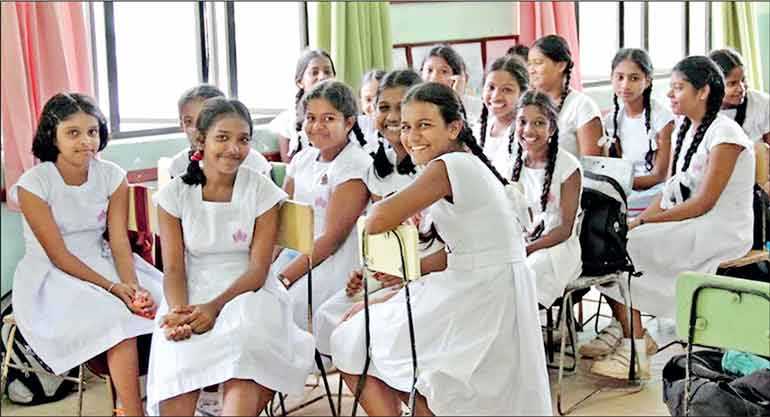Saturday Feb 21, 2026
Saturday Feb 21, 2026
Wednesday, 3 April 2019 00:00 - - {{hitsCtrl.values.hits}}

While the ultimate long-term objective should be to abolish the Grade Five Scholarship Examination, at the moment, Sri Lanka is not ready for such drastic action, an education policy researcher noted recently.
 |
Ashani Abayasekara |
Institute of Policy Studies of Sri Lanka (IPS) Research Officer Ashani Abayasekara, assessing the effectiveness and the relevance of the scholarship exam, highlighted that Sri Lanka should improve the quality of schools and teachers across the island, before moving on to abolish the exam. In the meantime, the exam should be restructured and made optional, she recommended.
“There are two main objectives of the scholarship exam. The first is admitting talented students to popular and more prestigious schools and the second is providing bursaries to bright, but economically disadvantaged, students. Unfortunately, the exam fairs poorly in meeting either of these objectives,” Abayasekara pointed out.
Her research shows that the share of students admitted to grade six in national schools, based on scholarship exam results, is only 20%. Startlingly, even the movements that do take place mostly happen from privileged schools to highly-privileged schools, as opposed to underprivileged schools to privileged schools.
On the financial aid front, only 4% of the students who sit for the exam are eligible for the bursary payment. The payment itself is as low as Rs. 500 per month. 
“This is negligible, compared to funds spent over the years on private tuition, which can cost between Rs. 600 to as much as Rs. 5,000 a month, depending on the quality and the popularity of tuition classes,” the researcher pointed out.
While she admitted that many high scoring scholarship students continue to do well at their A-Levels, this does not necessarily mean that the scholarship exam identifies the most intelligent students; research shows that even those who do not score top marks in grade five, subsequently perform well at the A-Levels.
“A likely explanation is that access to high-quality education in urban privileged schools, and to tuition classes in surrounding areas, enable students to do well at the A-Levels, irrespective of performance at the scholarship exam. The importance of the scholarship exam is, therefore, to provide opportunities to rural disadvantaged students to enter such good schools for secondary education. The fact that only around 20% of students do get a chance to enter such schools based on the scholarship exam is thus a pity.”
As such, she noted that, while weighing of the costs and benefits of the exam made sense to abolish it, mechanisms need to be first put in place to make sure that children, especially those from rural, disadvantaged backgrounds who stand to benefit from the exam, are not left high and dry.
To this end, she recommended that in the short-run, a larger number of places should be reserved for scholarship exam high scorers to enter good schools in grade six. Another short-term solution is to make this a voluntary exam in all schools. Leaving the choice of taking the exam in the hands of parents and children will help ensure that those who have the highest potential of benefitting from it sit for the exam, and also prevent many children undergoing needless stress and pressure. A reduction in numbers sitting for the exam will also lower the level of competition and associated stress among children.
Such a policy measure, however, needs to be accompanied by mechanisms to ensure that students from rural backgrounds and underprivileged schools do sit for the exam, so that the exam’s intended purpose of providing better educational opportunities to such students is preserved, Abayasekara noted.